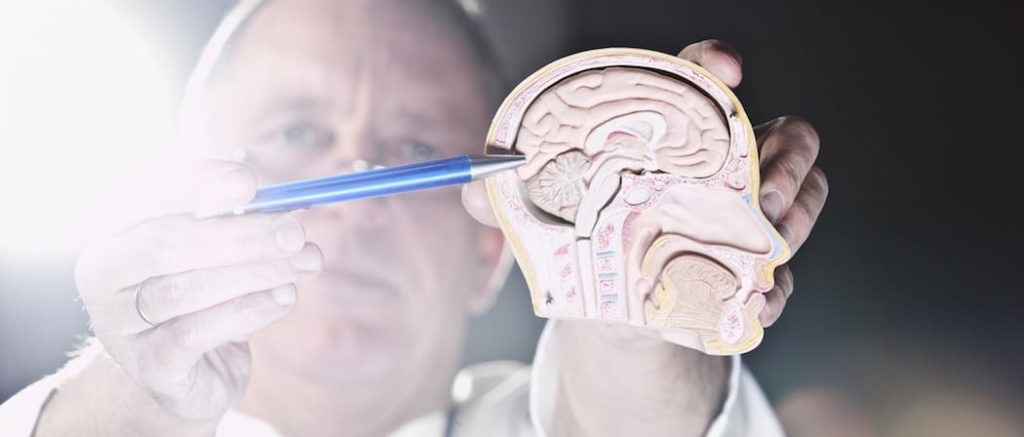Facebook continued to be the most popular social media site in 2014, but evidence is mounting that much of its lure is due to social media addiction, which shares many similarities to drug addiction in the brain. Seventy percent of Facebook users interact with the website every day, according to a new Pew Research Center report, and 45 percent do so multiple times per day. However, studies showing how the brain responds to social media use, as well as general findings about who is most at risk of Facebook addiction, provide compelling evidence that—like the gambling and tobacco industries—social media sites are profiting from their customers’ addictions.
Facebook’s Addictive Effect on the Brain
While some will maintain skepticism about the addictive potential of social media websites, findings of brain imaging studies showing similarities between substance addiction and social media addiction provide strong evidence that Facebook, Twitter and other sites work much like drugs and alcohol in the brain. In 2013, a study linked the intensity of Facebook use to the level of activity in the nucleus accumbens (the brain’s “reward” system), in particular, drawing the link to the part of the reward center associated with maintaining our social reputation. Additional research established that compulsive Internet use leads to changes in the brain—particularly in reward pathways—comparable to those observed in drug addicts.
Impulsiveness and Facebook Addiction
Another study found that those who scored highly on a test for Facebook addiction showed evidence of being more impulsive. The researchers recruited 20 undergraduate students, and after administering a questionnaire to gauge their levels of addiction to Facebook, the participants were presented with a series of images while their brains were scanned. The participants were either presented with Facebook-related images (such as the website’s logo) or less potent images (traffic signs), and were either instructed to press or not press a button in response to them. Those who scored more highly on the questionnaire were more likely to press the button—even if they weren’t supposed to—for Facebook-related images in comparison to the traffic sign images. The brain imaging showed that these high-scoring participants had more activation in the amygdala and striatum, two regions associated with impulsive behavior, and the patterns of increased activation were comparable to those seen in cocaine addicts. The only difference observed was that the areas of the brain tasked with inhibiting this impulsive behavior worked normally, whereas in drug addicts they don’t.
Who Is Most at Risk of Facebook Addiction?
An early piece of research into Facebook addiction established some characteristics associated with social media addiction, as well as developing a scale to judge whether someone may be addicted. The researchers found that—as you may expect—the social nature of the website was central to its habit-forming potential. Extroverts, women, people unable to get to sleep until late at night and people who are socially insecure or anxious are at increased risk of Facebook addiction, according to the study. For those with social anxieties, the increased risk stems from the fact that communicating through social media is seen as less stressful than doing so face-to-face. The study also identified that organized and ambitious people tend to use social media for work or as a networking tool and are consequently at decreased risk of addiction.
How Does Facebook Hook Users?
The addictive nature of Facebook has been established through brain imaging studies, and the site appears to capitalize on our natural desire to be sociable, but what does the website itself do to establish an addiction-like cycle? According to Nir Eyal, author of the book Hooked: How to Build Habit-Forming Products, Facebook works by offering a variable or unpredictable reward in response to our emotional triggers. He explains that the lure comes down to, “a trigger, such as loneliness, boredom, or stress; an action, such as logging in to Facebook; an unpredictable or variable reward, such as scrolling through a mix of juicy and boring tidbits in the newsfeed; and investment, which includes posting pictures or liking someone’s status update.” In other words, we experience an unpleasant emotion and respond by checking Facebook to relieve it, which may or may not give us the sort of reward we’re looking for. This unpredictability gives us all the more reason to keep checking it, looking for that “juicy” tidbit among the boring ones. The interaction is the final piece of the puzzle: we post our own tidbits and comment or “like” those posted by others, stimulating the part of our reward center associated with maintaining our social reputation.
Make No Mistake, Facebook Is Addictive
As with all addictions, not everybody is affected by Facebook addiction; instead, the people most at risk—through issues relating to socialization and negative emotions like loneliness—may develop a problem, whereas most can post and “like” statuses and pictures with minimal consequences. The fact that Facebook seems harmless for most is not reason to think it’s harmless for everybody, and with mounting evidence of addiction-like changes in the brain, the reality of Facebook and social media addiction is hard to avoid. We do need to know more about Facebook addiction, but don’t let the lack of certainty prevent you from asking crucial questions about your own social media use. If you’re having problems, it’s better to talk to somebody and to try to overcome them than bury your head in the sand and deny that Facebook can be addictive.

